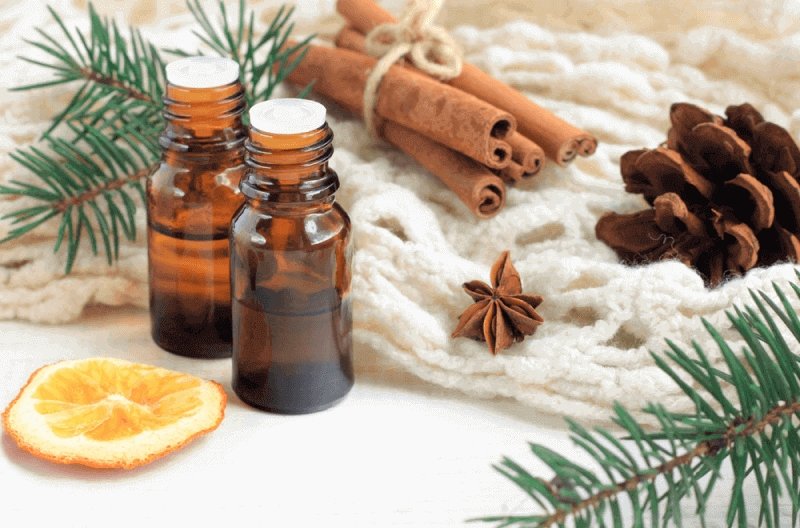Essential oils are distilled and highly concentrated liquids extracted from various parts of plants. But how do essential oils really work? Keep on reading to find out how fast essential oils work.
The oils contain active ingredients that work to provide a specific effect – whether it is to be purifying, stimulating, relaxing, or sedating. Essential oils can help relieve many physical ailments such as aches and pains, migraines, and even sinus infections. However, users still need to be cautious when using them because they can interfere with certain medications and cause adverse reactions if used improperly.
Types of essential oils can vary in their composition, but they are generally categorized by the source of the oil. The oils may contain chemicals similar to those in the plant or they can be made up of entirely different compounds.
What is an example of an essential oil?
Some examples of essential oils are peppermint oil, which has analgesic properties that help with pain relief and is also used as a decongestant; chamomile oil, which is often used to add moisture and help provide sun protection; and lavender oil, which are thought to help improve your mood.
How do essential oils work?
Oleia essential oils are concentrated liquids that come from the leaves, bark, roots, and other parts of various plants. These oils have been used throughout history to supplement medical treatments, food preparation and more. In fact, it's believed that some aromatic oils can help prevent bacterial infections as far back as ancient Egypt!
The oils work by stimulating specific nerve endings within the nose or on your skin. They slowly release their aroma until you can smell them and trigger a response in your brain, which is responsible for everything from memory to moods. Some of these effects can be surprisingly powerful—that’s why aromatherapy has been used for centuries.
Do essential oils work?
When used correctly, essential oils do work! In fact, essential oils have many benefits, provided they are used correctly. Some studies have shown that lavender oil can help reduce anxiety levels in patients who were about to undergo surgery. Others show peppermint oil may help control pain in teeth with acute dental caries when applied topically.
Some people also claim essential oils help promote weight loss by stimulating the lymphatic system, which removes excess water from the body and regulates digestion.
Are there any side effects?
Now that we’ve established that essential oils do work, you need to understand how to use it properly. While a recognized generally safe product, not everyone responds to essential oils the same way. Just because an oil is natural does not mean it is guaranteed to have no side effects. One of the most common complaints people have about using essential oils is skin sensitization, which causes rashes and irritation when applied to the skin. However, this condition can be avoided by always following proper usage instructions or checking with a doctor if necessary. Other side effects include headaches, nausea, dizziness, fatigue, and respiratory discomfort are also reported occasionally by some users of various essential oils.
People who are currently on medication should ask their doctors before trying any type of herbal supplement, including essential oils, since they may react negatively with the other substances in their medication. Cross-reactions can occur because certain essential oils can contain ingredients that are similar to medications, which may result in an overdose when combined together.

What precautions should be taken when using essential oils?
It is important to take certain precautions when using essential oils especially if the oil has not been diluted with a carrier oil such as grapeseed or coconut oil. They can cause adverse reactions if they touch your skin without being diluted. When using essential oils always make sure it is under the supervision of a medical professional who can monitor you for any adverse reactions.
How to use essential oils safely
Make sure to consult your healthcare provider prior to using any new products if you have any pre-existing medical conditions, such as high blood pressure or if you're taking medications or receiving any kind of treatment.
If you're pregnant, breastfeeding, or have a child younger than 5 years old, consult your OB GYN or pediatrician before using essential oils. Essential oils in its pure form may not be safe for women who are pregnant or breastfeeding.
Finally, do a patch test to ensure that the oil will not cause an allergic reaction when used on the skin.
Which essential oil should I use?
Essential oils can help relieve a wide variety of symptoms, provided you use the right one for your condition.
- If you have a respiratory ailment, it's best to use an oil that is anti-inflammatory and antiviral. A good essential oil for cough or asthma is frankincense oil.
- If you are suffering from muscular aches or pains in joints or muscles, then try using an anti-inflammatory oil before applying ice. We recommend using peppermint essential oil for pain relief.
- If you are looking to calm the mind and body, lavender oil is a good essential oil to use for stress relief. It also helps provide relief on wounds and can help soothe sunburns.
- If you would like to help minimize the appearance of scars or stretch lines, try using tangerine oil which is known as one of the best essential oils for scars and dark spots.
How fast do essential oils work?
How fast essential oils work varies depending on whether you are using essential oils topically or aromatically. When used topically, many of the essential oils will absorb immediately on contact with the skin compared to inhaling them. For instance, Oleia essential oil, is made using a special acetylation process which makes it easier for your skin to absorb the active ingredients in these exotic fruits, helping deliver its effects as quickly as possible. The aromatic use of essential oils works more slowly as the vapors first need to make their way to your nasal passages before they can affect you. After inhalation, it generally takes about 20 minutes for some effects to be felt whereas a topical application may only take a few seconds.
Do essential oils expire?
Yes, even though essential oils are natural products they can still spoil over time when exposed to light, heat, or oxygen. The rate at which they expire varies depending on the specific oil, so it is important to follow the guidelines set out by the manufacturer of your essential oil in order to get the most out of them.
In conclusion, essential oils have been used since the beginning of time and have long since been considered a method to help provide relief. Essential oils have been shown to provide a positive impact on your health and well-being as well as aromatherapeutic effects. You need to use them safely because they may interfere with certain medications and cause adverse reactions if used improperly.


